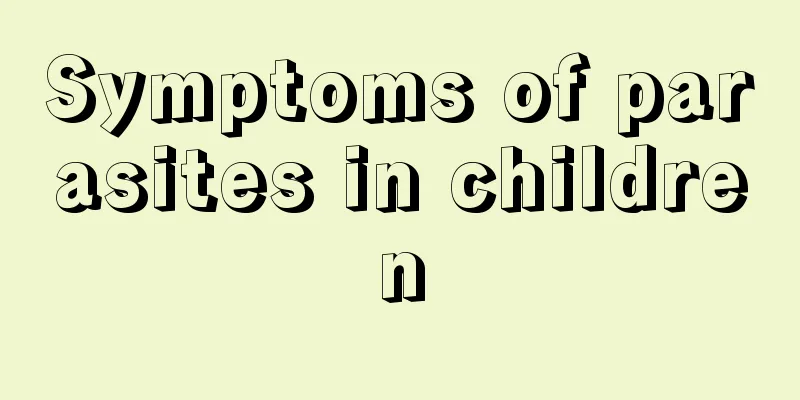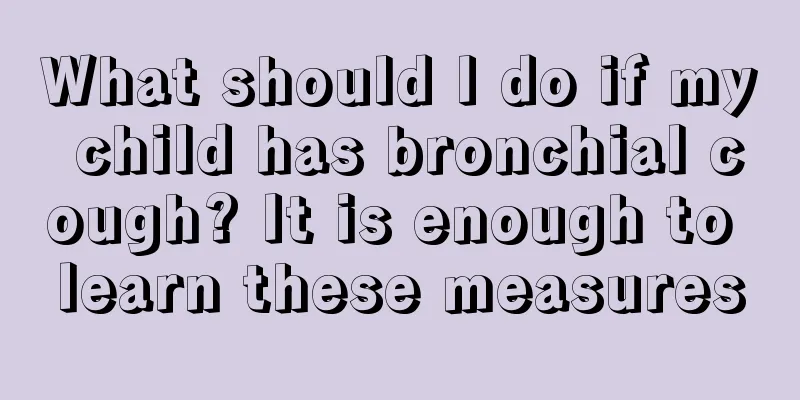The harm of smog to babies should not be ignored

|
As air pollution continues to worsen, smog appears more and more frequently, and may even last for more than a week, causing great harm to babies' health. Children often suffer from rickets, emotional instability, respiratory tract infections and lung cancer. Hazard 1: Pediatric respiratory tract infection and lung cancer The composition of haze is very complex, including hundreds of types of atmospheric chemical particulate matter. Among them, the aerosol particles that are harmful to health are mainly those with a diameter of less than 10 microns, which can directly enter and adhere to the human respiratory tract and alveoli. In particular, submicron particles will be deposited in the upper and lower respiratory tracts and alveoli, causing diseases such as acute rhinitis and acute bronchitis. If you stay in this environment for a long time, it will also induce lung cancer. If the baby inhales haze through the respiratory tract, it will be deposited in the baby's alveoli. The smoke and dust deposited in the alveoli will be dissolved and enter the blood, damaging the hemoglobin's ability to transport oxygen and easily causing blood poisoning. Other harmful substances contained in haze, such as sulfur dioxide, mainly irritate the baby's respiratory tract and are more harmful to the baby. When the haze is severe, pollutants and impurities can cause lesions in the baby's central nervous system, causing pulmonary edema or chronic bronchitis. Especially when the baby inhales them into the lungs, it can lead to emphysema and lung cancer in severe cases. Hazard 2: Rickets in children Since the ultraviolet rays in the sun are the only way for the human body to synthesize vitamin D, the weakening of ultraviolet radiation directly leads to the baby's chance of suffering from rickets. In addition, ultraviolet rays are nature's main weapon for killing atmospheric microorganisms such as bacteria and viruses. Haze weather weakens ultraviolet rays in the near-ground layer, which can easily increase the activity of infectious bacteria in the air and increase the number of infectious diseases. Hazard 3: Emotional instability Cloudy days can also affect the baby's mood, because the weather is gloomy all day long and the sun is dim and dark. The pineal gland in the baby's body will secrete more pinocytol, which makes the concentration of thyroid hormone and adrenaline relatively lower. Thyroid hormone, adrenaline, etc. are hormones that stimulate cell work. Once they decrease, the cells will become "lazy" and extremely inactive, and the baby will appear listless. Gloomy and foggy weather, due to weak light and resulting low air pressure, can easily make babies feel lazy, depressed and pessimistic, and they may even lose control when encountering unpleasant things. Although the fog looks mild, it actually contains various harmful substances such as acids, alkalis, salts, amines, phenols, dust, pathogenic microorganisms, etc., and its content is dozens of times that of ordinary atmospheric water droplets. If exposed to the air for a long time, these substances will affect the human respiratory tract. If they enter the lungs, they will affect the cilia movement in children's lungs, causing upper respiratory tract infections, acute tracheobronchitis and pneumonia, asthma attacks, etc. Therefore, it is unwise to take your baby out in foggy weather. |
<<: Children blink very frequently. Let us tell you the real reason!
>>: What should I do if my 3-year-old child refuses to eat? This is what parenting experts say
Recommend
Is it zinc deficiency that causes children to not eat?
Many people will ask if children not eating is du...
How many times a day is normal for a four-month-old baby to defecate? How to pay attention to these details
Generally, there is a certain pattern in the freq...
What causes white stool in children?
What are the symptoms of white stools in children...
The harm of secondhand smoke to children
Nowadays, there should be many people who smoke a...
Reasons why babies always have fever
The baby's body is more delicate, especially ...
What to do if your child is allergic to alcohol
Today, let’s learn about a question: What should ...
What to do if your 11-month-old baby can't crawl
Baby crawling is actually a very important thing ...
Symptoms of parasite infection in babies
It is very common for babies to have parasites in...
How to treat intellectual disability in children?
Intellectual disability means that a child's ...
Why do children have memory loss?
Children's poor memory is one of the things t...
Children with laryngitis snoring during sleep
Snoring while sleeping is a common phenomenon, bu...
Newborn baby has no bowel movement on the third day?
If a newborn does not have a bowel movement on th...
Height and weight standard indicators for 11-year-old children
We all know that children's developmental ind...
Girl's vaginal bleeding
Girls' bodies are the purest. Since they are ...
What foods should children not eat too much?
Parents need to pay attention to children's d...









